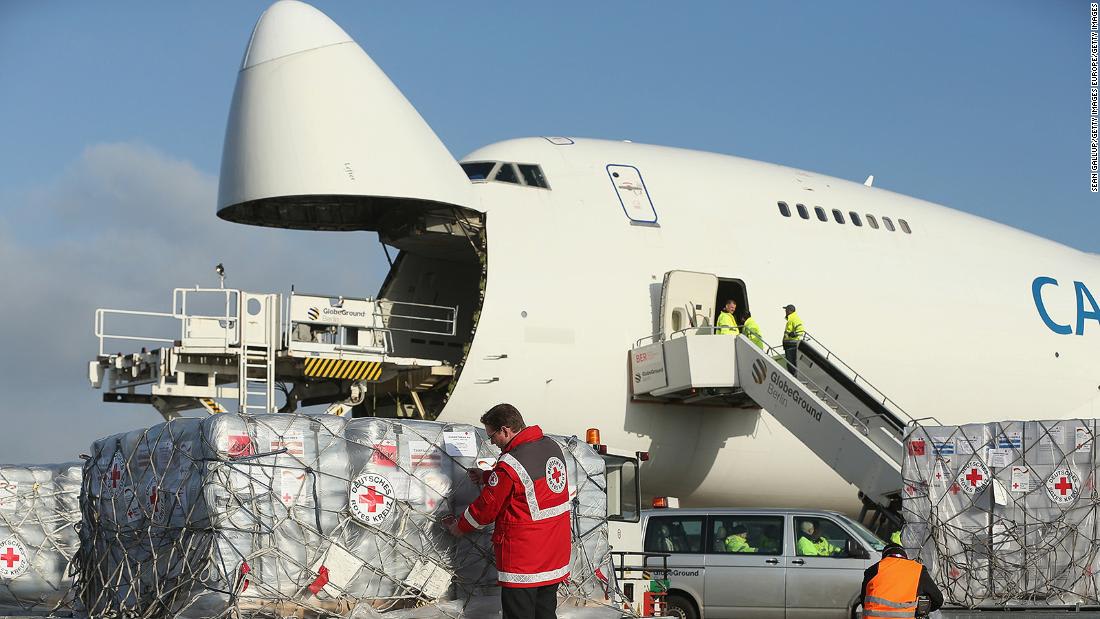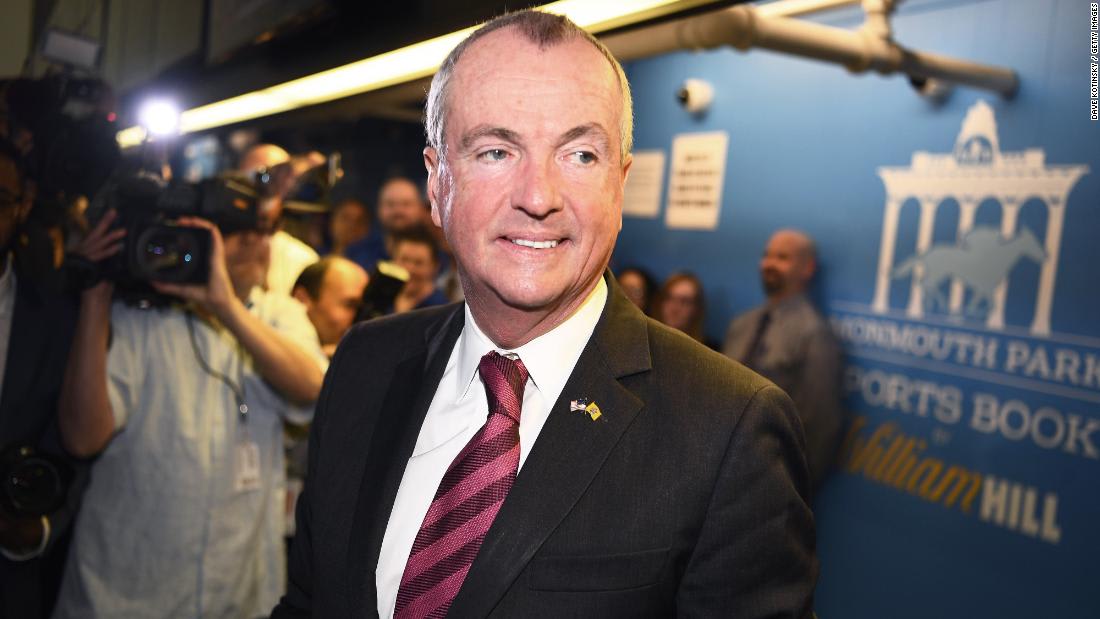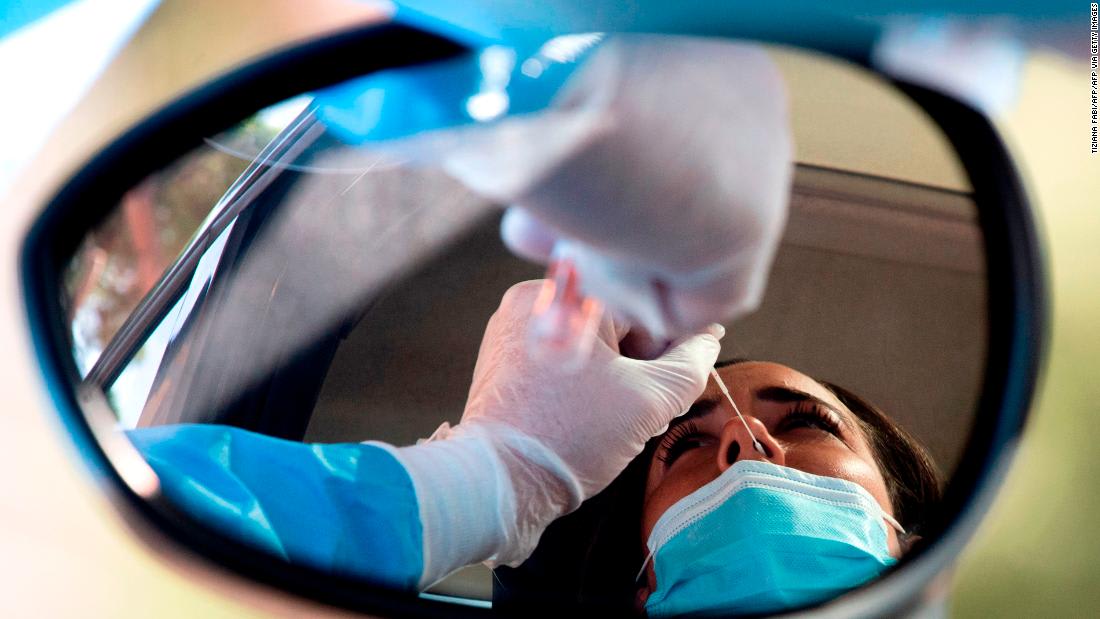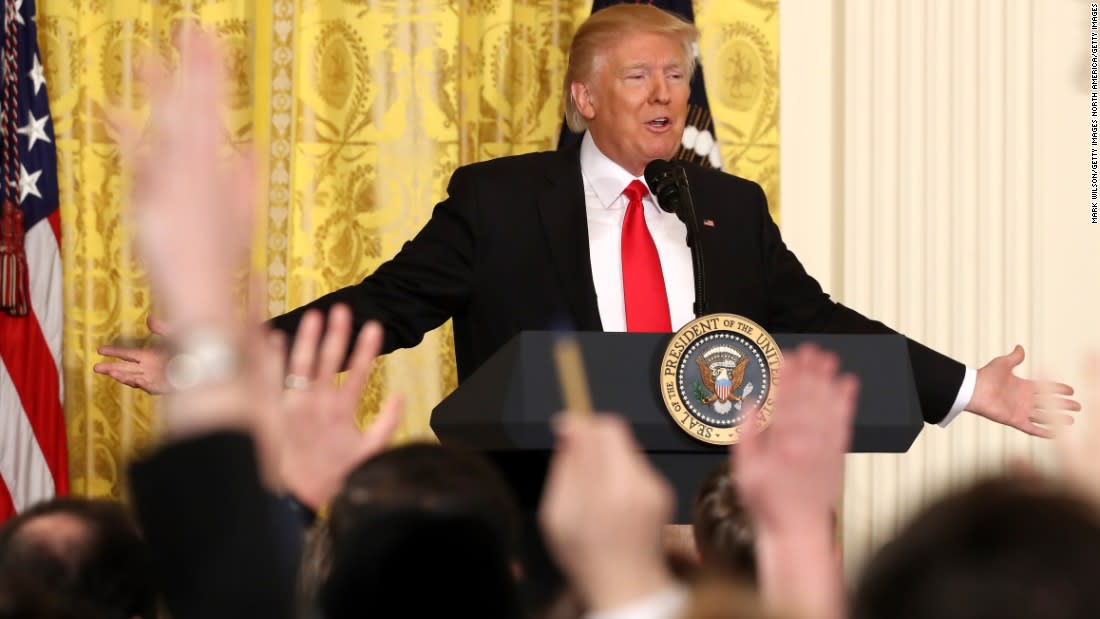AstraZeneca confirms Covid-19 vaccine trial was also paused in July
From CNN's Maggie Fox and John Bonifield
AstraZeneca denied news reports Wednesday that suggested its coronavirus vaccine trial was stopped because of a case of transverse myelitis – a rare inflammatory condition of the spinal cord.
“Those tests will be delivered to an independent safety committee that will review the event and establish a final diagnosis,” the spokesperson added.
AstraZeneca said Tuesday it had paused vaccine trials globally because of an undisclosed event, but did not elaborate on what it was. The New York Times had quoted a source saying a trial volunteer had transverse myelitis.
On Wednesday, STAT News reported that the company’s CEO, Pascal Soriot, told investors in a conference call that the trial was stopped because a woman volunteering in the trial had symptoms consistent with transverse myelitis.
There was a similar incident earlier, the AstraZeneca spokesperson said.
8,000 cargo jets needed to transport Covid-19 vaccines around the world, says IATA
From CNN's Karla Cripps
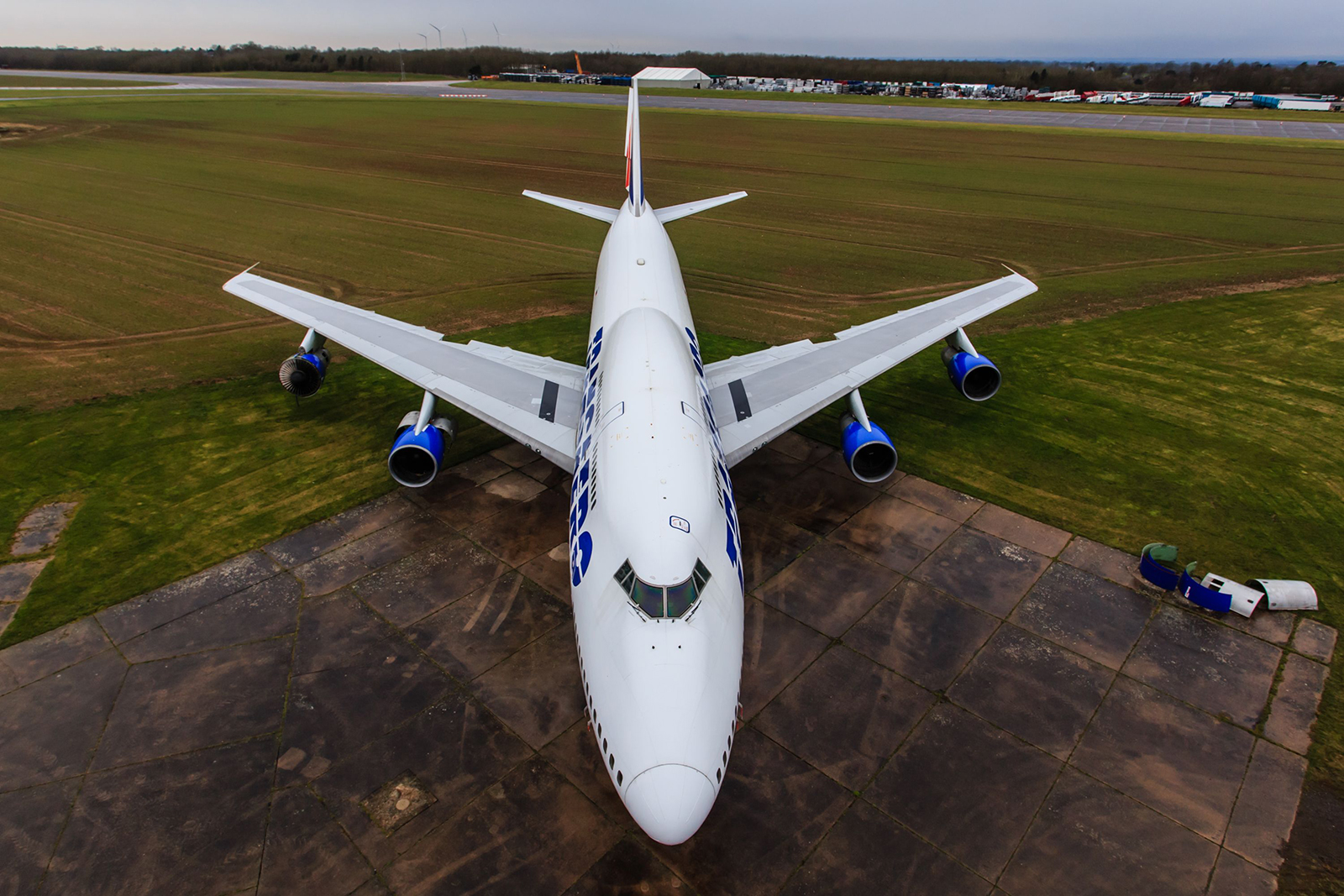 High Level/Shutterstock
High Level/ShutterstockAs global pharmaceutical companies race to complete their Covid-19 vaccine trials, the logistics that will be required to deliver them to all corners of the world are coming into focus -- and it will be a mission like no other.
According to the International Air Transport Association (IATA), providing a single dose of the vaccine to 7.8 billion people will require the use of 8,000 Boeing 747 cargo aircraft -- and planning needs to begin now.
Safely delivering Covid-19 vaccines will be the mission of the century for the global air cargo industry," said IATA's director general and CEO, Alexandre de Juniac, in a statement.
"We urge governments to take the lead in facilitating cooperation across the logistics chain so that the facilities, security arrangements and border processes are ready for the mammoth and complex task ahead," he added.
The air cargo industry has long played an important role in vaccine distribution, providing well-established time- and temperature-sensitive systems -- which will be crucial to the quick and efficient transport of Covid-19 vaccines, notes IATA.
Read the full story:
French government can't rule out local lockdowns, adviser says
From Barbara Wojazer in Paris
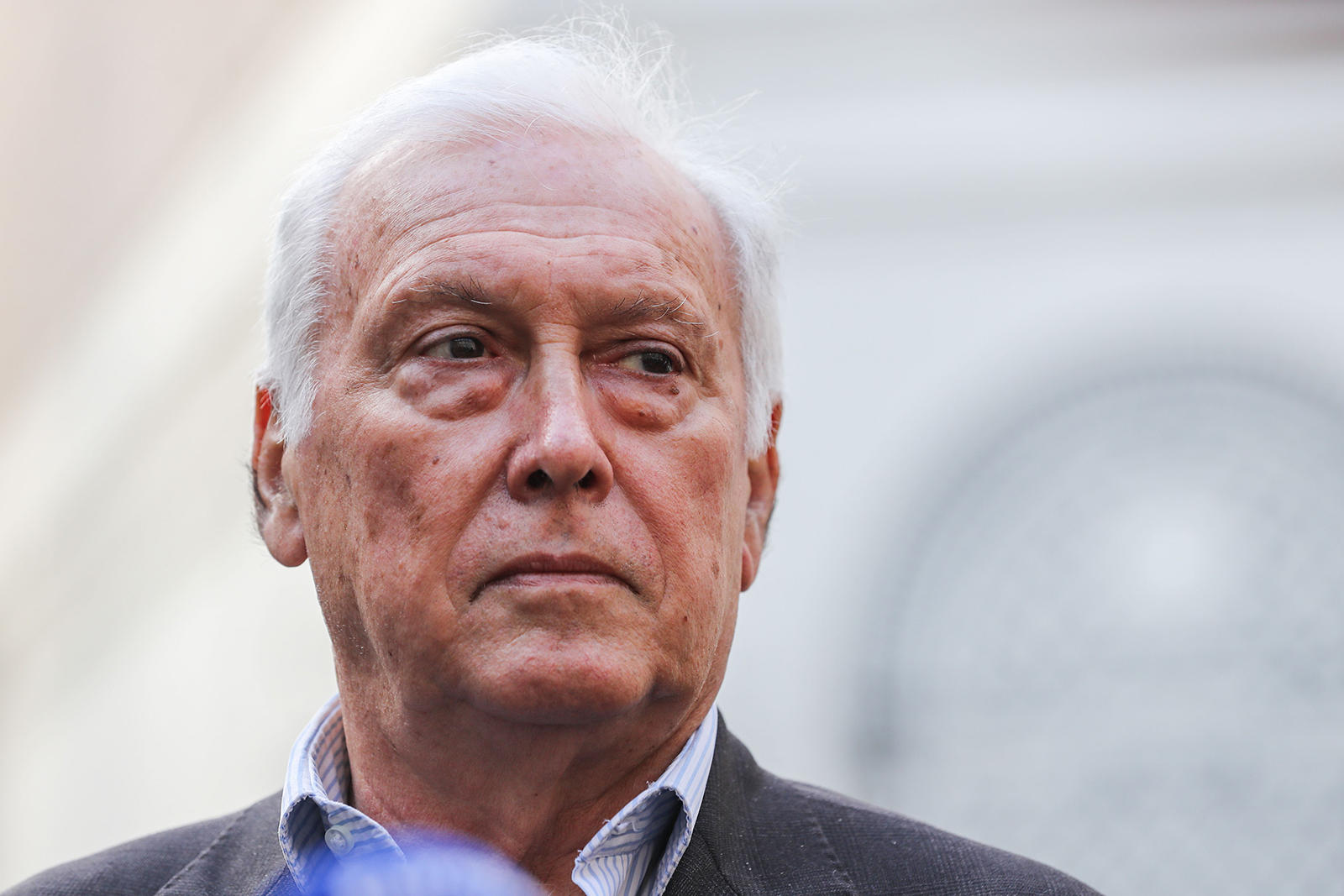 French immunologist Jean-Francois Delfraissy looks on in the courtyard of the French Interior ministry in Paris, on March 13. Ludovic Marin/Pool/AFP/Getty Images
French immunologist Jean-Francois Delfraissy looks on in the courtyard of the French Interior ministry in Paris, on March 13. Ludovic Marin/Pool/AFP/Getty ImagesFrance should avoid going back into lockdown as it fights the resurgence of Covid-19 in the country, but the government cannot rule out imposing such restrictions at a local level, scientific adviser Jean-François Delfraissy said during an interview with RTL today.
However, he also said that local lockdowns could “not completely be ruled out,” and stronger restrictions could be imposed in regions showing higher infection rates.
Rising cases: The virus has “started to significantly circulate again” in the past few weeks, leading to “worrying” situations in some regions, Delfraissy explained.
He added that the “difficult” choices to be made by the government would not only be determined by sanitary reasons, but also by economic and social factors.
Decisions had to be made quickly to curb the epidemic, he said, as any decision would take “about three weeks” to have visible impacts.
The 1918 flu caused Halloween cancellations across the US. It could happen again
From CNN's Kristen Rogers
 Frederic J. Brown/AFP/Getty Images
Frederic J. Brown/AFP/Getty ImagesOn the list of traditions canceled by the coronavirus pandemic, Halloween might be next on the cultural hit list.
Los Angeles County, for example, has led the charge by issuing formal guidance that recommends against trick-or-treating and bans outright haunted houses, festivals and other traditional festivities that would fall under current Covid-19 health guidelines, according to the county's public health department.
The decision is history repeating itself: During the 1918 influenza pandemic, "Halloween parties in general, as well as other social functions attracting large numbers of people (were) discouraged" by LA health authorities, according to an October 30, 1918, Los Angeles Times report.
The fall of 1918 was the second and worst wave of the 1918 flu pandemic, which killed between 50 million and 100 million people worldwide.
The highest death rates occurred from October to December, possibly due to a deadlier strain of the virus and crowding in hospitals and military camps.
"In most places in the United States, by October 31 of 1918, conditions would have been grim," said Elizabeth Outka, a professor of English at the University of Richmond and author of the book "Viral Modernism: The Influenza Pandemic and Interwar Literature."
As the flu ravaged the globe, many US cities saw the need to restrict or ban Halloween celebrations.
Read the full story:
New Jersey governor says he would have shut state down earlier if Trump was honest about Covid-19 threat
From CNN's Paul LeBlanc
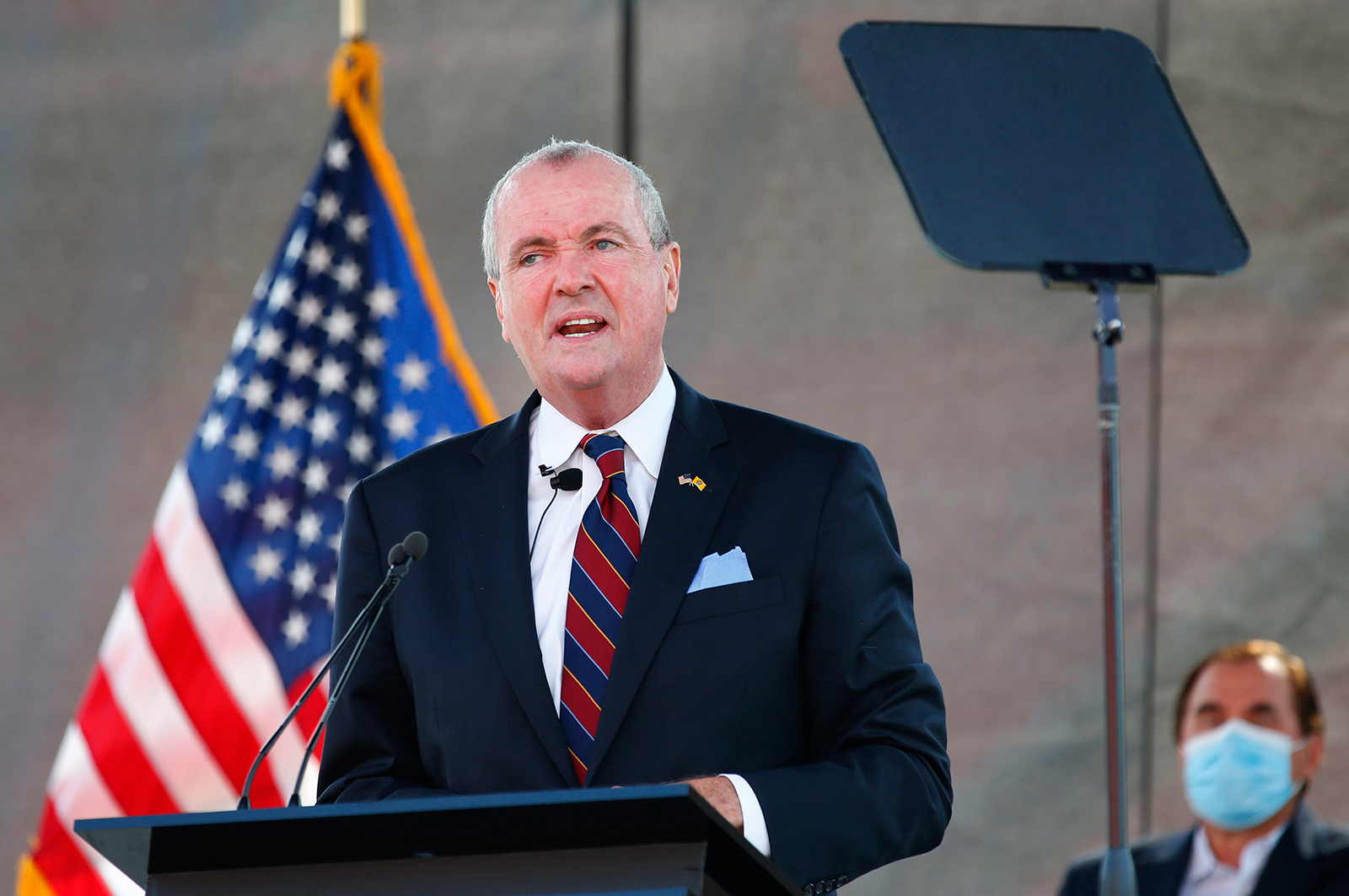 In this file photo, New Jersey Gov. Phil Murphy speaks at Rutgers University in Piscataway, New Jersey on August 25. Noah K. Murray/AP
In this file photo, New Jersey Gov. Phil Murphy speaks at Rutgers University in Piscataway, New Jersey on August 25. Noah K. Murray/APNew Jersey Gov. Phil Murphy said Wednesday he would have taken more aggressive action to fight Covid-19 if US President Donald Trump had been more honest about the true threat of coronavirus during the early days of the pandemic.
Murphy's comments come after CNN obtained audio tapes of Trump telling legendary journalist Bob Woodward that he knew weeks before the first confirmed US coronavirus death that the virus was dangerous, airborne, highly contagious and "more deadly than even your strenuous flus," and that he repeatedly played it down publicly.
Murphy said Wednesday had he known -- as Trump did -- that the virus was airborne, he would've taken steps earlier to protect his state.
"I can't tell you, as I sit here, how many we would have saved, but there's no question in my mind we would have saved lives."
Read the full story:
Opinion: Why Canada flattened the curve -- and the US didn't
Opinion from Michael Bociurkiw
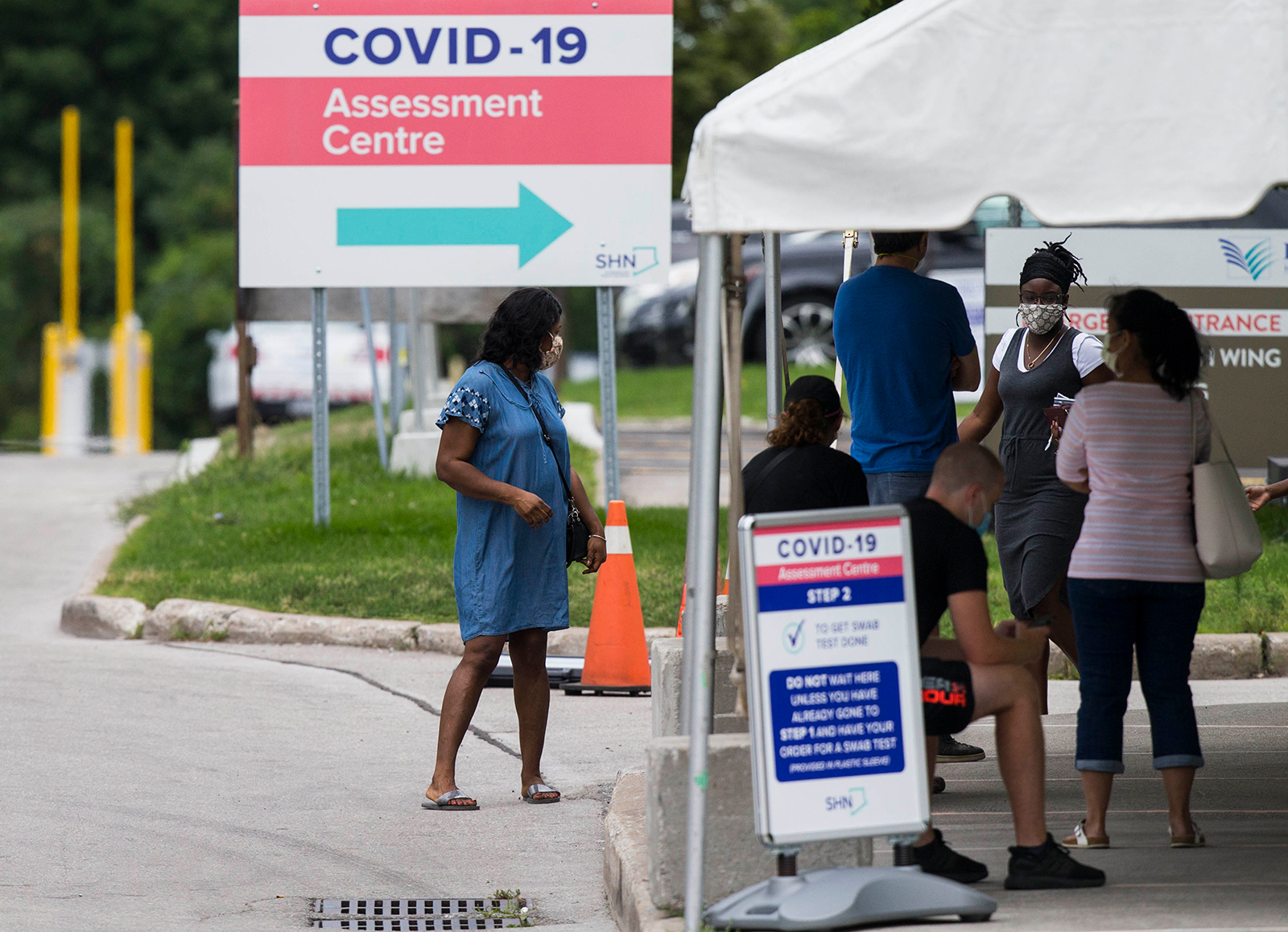 People wearing face masks line up for testing at a Covid-19 assessment center in Toronto, on August 11. Zou Zheng/Xinhua/Getty Images
People wearing face masks line up for testing at a Covid-19 assessment center in Toronto, on August 11. Zou Zheng/Xinhua/Getty ImagesEditor's note: Michael Bociurkiw is a global affairs analyst and a former spokesman for the Organization for Security and Cooperation in Europe. The opinions expressed in this commentary are his.
There are a number of theories as to why Canada has managed to flatten the Covid-19 curve much better than the United States. One is that Canadians, who entered confederation with the motto "peace, order and good government" are much more compliant than our southern neighbors with their attachment to "life, liberty and the pursuit of happiness" -- even if it means potentially killing others by refusing to wear masks in the name of freedom.
It can also be argued that the federal and provincial governments enabled Canadians to respect lockdowns and stay at home by offering unprecedented and generous financial aid from early on -- including up to C$2000 per month for Canadians out of work, as well as more time to pay taxes and mortgage payment deferrals, allowances for seniors, and wage subsidies for businesses -- all a far cry from the limited amounts offered south of the border. Even the media received a C$30 million handout from Ottawa in the form of forgiveness of broadcasting fees.
In all, the Covid-19 measures helped push the federal deficit to C$343.2 billion this year and the federal debt past the C$1 trillion mark for the first time, former federal Finance Minister Bill Morneau said in July.
And all that is on top of free public health care, including free testing.
Read the full op-ed:
Jakarta puts "emergency brakes" on relaxing coronavirus restrictions
From CNN's Chandler Thornton
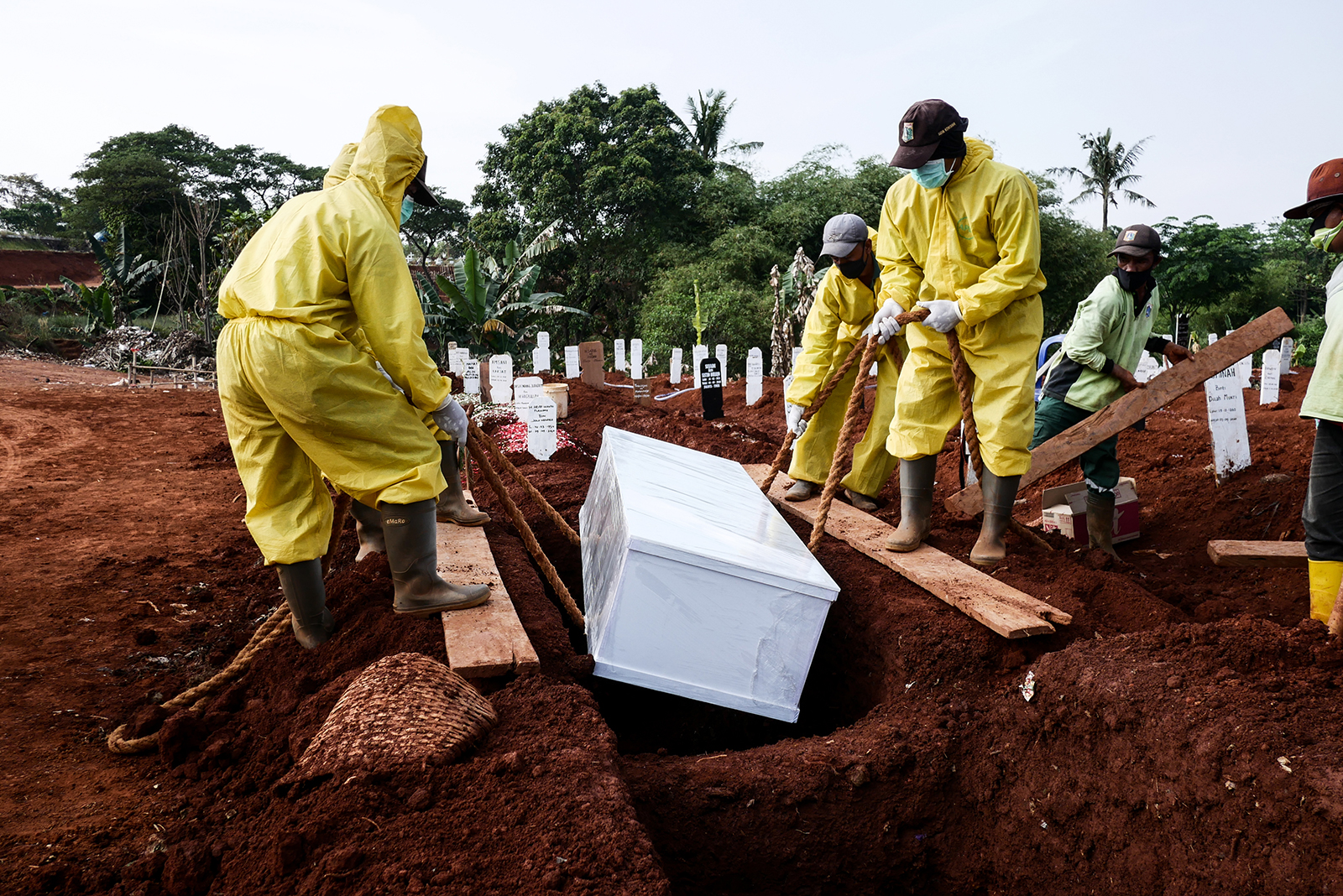 Funeral workers wearing protective suits bury a Covid-19 victim at Pondok Ranggon cemetery in Jakarta, Indonesia, on September 9. Anton Raharjo/Anadolu Agency/Getty Images
Funeral workers wearing protective suits bury a Covid-19 victim at Pondok Ranggon cemetery in Jakarta, Indonesia, on September 9. Anton Raharjo/Anadolu Agency/Getty ImagesJakarta is putting the "emergency brakes" on relaxing coronavirus restrictions and instead reimposing strict measures, the Indonesian capital's governor said, according to state news agency Antara.
The governor said his decision was based on three factors, Anatara reported:
"In the past two weeks, mortality rates have spiked back up. In terms of percentage, they may still be considerably low, but in terms of the numbers, they have gone back up. The availability of beds is at maximum capacity and they may be fully filled by the end of the month, if there are no restrictions," Baswedan said.
The new measures will go into effect September 14, according to Antara.
Jakarta's government reported that 12.2% of those tested for Covid-19 in the city last week tested positive. The city, home to more than 10 million people, has confirmed a total of 49,837 Covid-19 infections. That's nearly a quarter of Indonesia's total number of cases, according to government figures.
Jakarta's death toll from the virus is 1,347. Indonesia's nationwide death toll is 8,336, according to Johns Hopkins University.
India reports another highest daily spike with more than 95,000 new Covid-19 cases
From CNN’s Swati Gupta in New Delhi
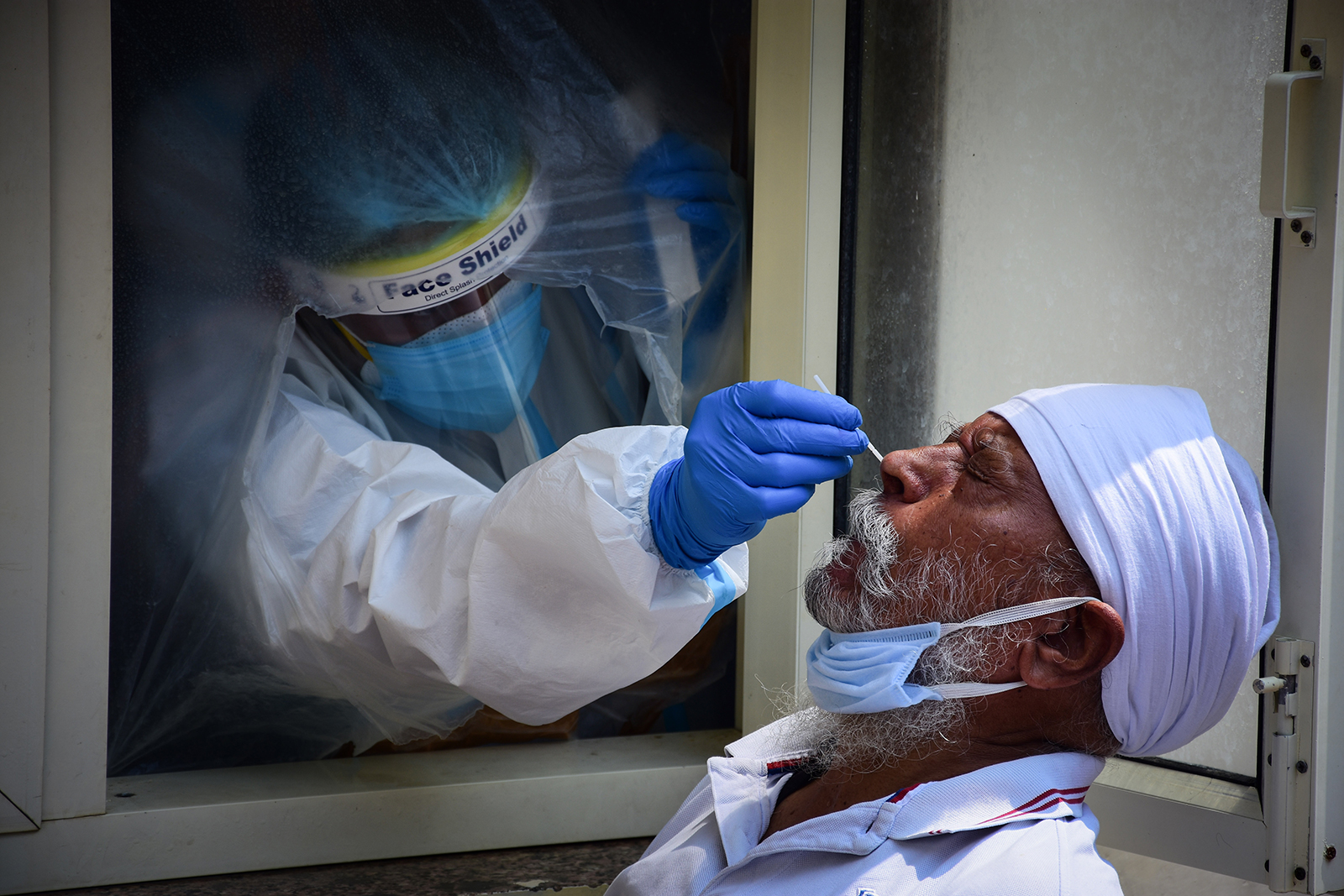 A health worker collects a swab sample from a man to test for Covid-19 at Nehru Homoeopathic Medical College and Hospital, Defence Colony in New Delhi, on September 9. Manish Rajput/SOPA/Sipa USA
A health worker collects a swab sample from a man to test for Covid-19 at Nehru Homoeopathic Medical College and Hospital, Defence Colony in New Delhi, on September 9. Manish Rajput/SOPA/Sipa USAIndia has recorded a new highest 24-hour increase in Covid-19 infections with 95,735 new cases, according to the Ministry of Health and Family Welfare.
As of Thursday morning, India had confirmed at least 4.4 million cases of Covid-19 nationwide, of which at least 919,018 are active.
India's death toll now stands at 75,062, after another 1,172 fatalities were reported on Thursday, according to the Health Ministry.
In the capital: In its daily evening bulletin on Wednesday, the Delhi government announced its highest jump in infections, with 4,039 fresh cases, including 20 deaths. Delhi chief minister Arvind Kejriwal tweeted that the rise in numbers is related to an increase in testing. Kejriwal said the city conducted 54,000 tests on Wednesday, more than double the tests conducted in the past week.
The Delhi government has steadily opened up its economy over the past three months. Earlier this week, the subway system was allowed to operate with restrictions.
Delhi has recorded more than 200,000 coronavirus cases, including 4,638 deaths, since the start of the pandemic.
Trump's historic dereliction of duty laid bare
Analysis from CNN's Stephen Collinson
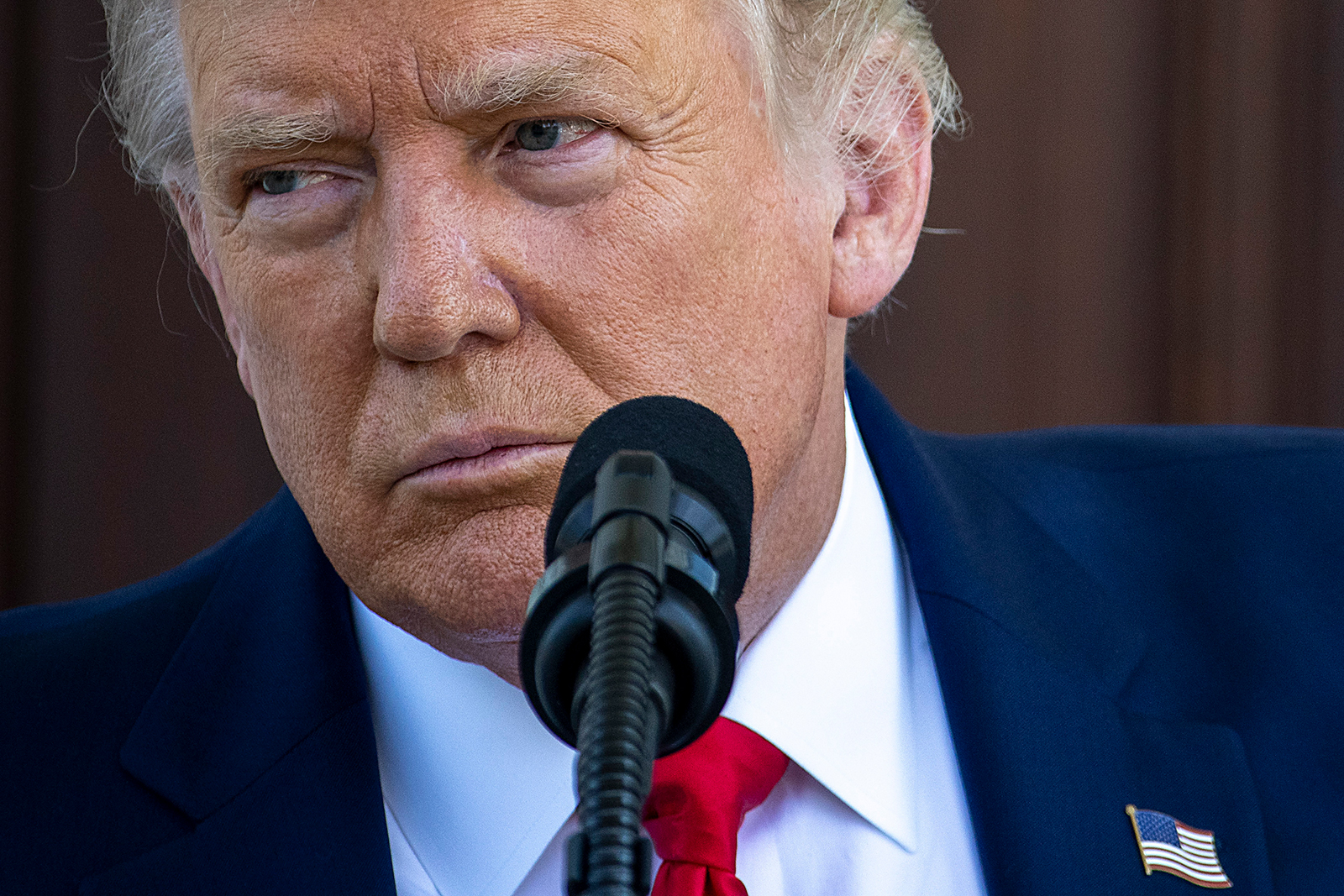 US President Donald Trump takes questions after delivering remarks during a news conference at the North Portico at the White House on September 7, 2020 in Washington, DC. Tasos Katopodis/Getty Images
US President Donald Trump takes questions after delivering remarks during a news conference at the North Portico at the White House on September 7, 2020 in Washington, DC. Tasos Katopodis/Getty ImagesIt matters who the president is.
Millions of lives and livelihoods depend on the character, competence, altruism and integrity of the person in the Oval Office -- whatever their party or ideology. But President Donald Trump -- as he devastatingly revealed in his own voice to Bob Woodward -- met the great crisis of his age with ineptness, dishonesty and an epic dereliction of duty.
Rarely have a president's actions -- or inaction -- and individual decisions on such a critical issue been so consequential and so exposed in his own time -- in this case in taped interviews with The Washington Post reporter for his new book, "Rage."
"I always wanted to play it down": The scandal of negligence Woodward exposed is distinct from the whirlwind of political corruption, abuses of power, chaotic West Wing dramas and wild personality paroxysms that have defined Trump's presidency. He can't spin this one away as "fake news" because he is on tape. He indisputably told Woodward he purposefully minimized a once-in-a-century health crisis.
"I wanted to always play it down," Trump told Woodward on March 19. "I still like playing it down, because I don't want to create a panic."
Trump contradicts his own White House's defense: Not every country is a South Korea or New Zealand -- which quickly understood the threat from the coronavirus and acted accordingly. There was plenty of failure in Europe, for instance, though most countries bought a summer respite from a mounting second wave.
And a more honest approach by Trump would not have saved every American life. But his deliberate deception and lack of seriousness at a grave national moment turned the US response into one of the world's worst.
The failure laid bare by Woodward in the President's own words is the ultimate repudiation of the "I alone can fix it" and "I know more about ISIS than the generals" school of leadership, in which Trump makes gut calls, ignores advice and puts politics above science.
Read the full analysis:

 5 years ago
793
5 years ago
793 